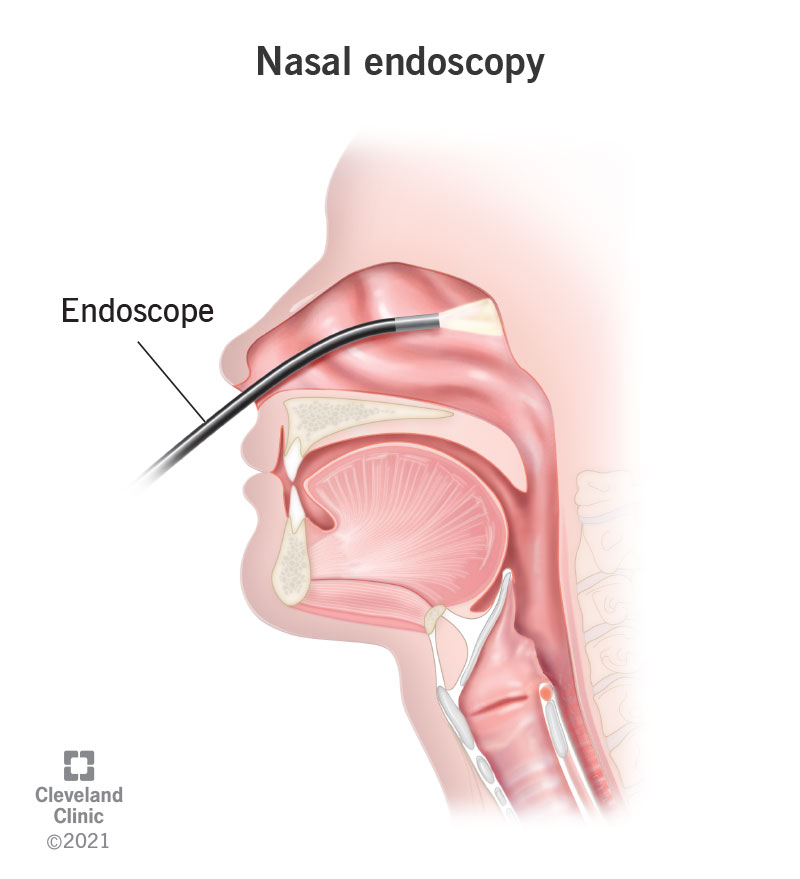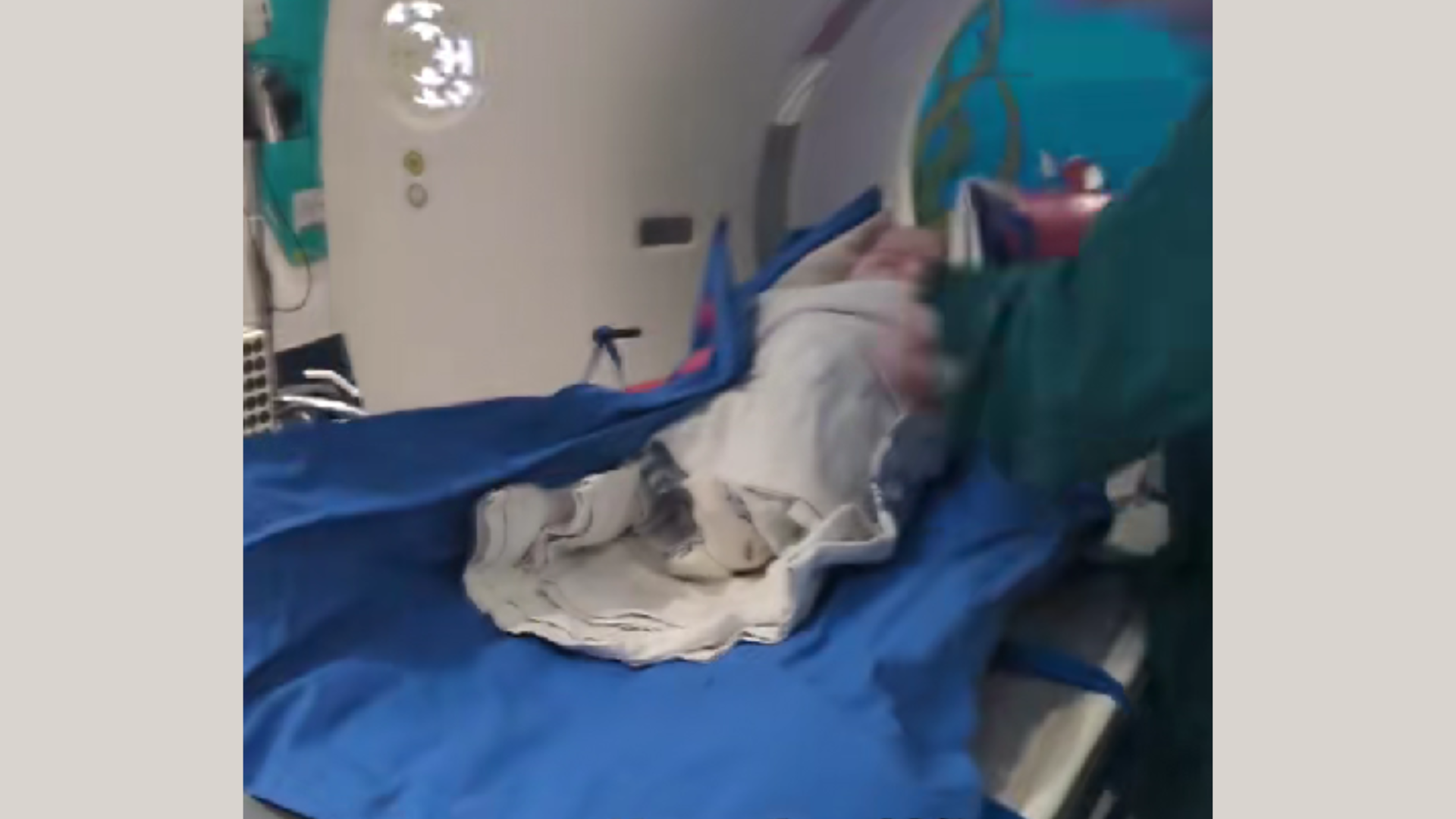Procedure & What It Is

How do I prepare for nasal endoscopy?
Generally, there aren’t any special preparations required for your nasal endoscopy procedure. Your healthcare provider can tell you if you need to do anything specific before your visit. People who take blood thinners should inform their healthcare provider and may need to temporarily stop taking these medications, but this is rarely the case.
What can I expect during nasal endoscopy?
Typically, you’ll be in a seated position for your nasal endoscopy. First, your healthcare provider decongests and partially numbs your nose to make the exam more comfortable. They may also apply a topical decongestant to reduce swelling, which allows the endoscope to move freely. Next, your healthcare provider inserts the endoscope and thoroughly examines your nasal and sinus passages, checking for any abnormalities. After examining one side of your nose, your healthcare provider will repeat this step on the opposite side. If necessary, they’ll remove a tissue sample and send it to a pathology lab for analysis.
How painful is nasal endoscopy?
Nasal endoscopy shouldn’t hurt; though, you’ll probably feel pressure during the procedure. The numbing spray may numb your mouth and throat, as well as your nose, and it does have a bitter taste. The numbness should go away in approximately 30 minutes. Nasal endoscopy after-effects may include slight soreness in your nose and throat. These symptoms usually resolve on their own in one or two days.
How long does a nasal endoscopy take?
In most cases, nasal endoscopy takes one to two minutes to complete.
What can I expect after nasal endoscopy?
Due to the lingering numbness from the anesthetic spray, it’s a good idea to avoid eating and drinking for about an hour after your nasal endoscopy. Your healthcare provider will let you know if you need to follow any additional instructions.
Follow your healthcare provider’s recommendations regarding follow-ups and medications. In many instances, your healthcare provider will schedule another nasal endoscopy in the future to monitor your progress.
What are the risks of nasal endoscopy?
In general, nasal endoscopy is safe. Rarely, however, people may experience complications, including:
- Adverse reaction to the anesthetic or decongestant.
- Fainting.
- Nosebleeds.
Specific risks depend on several factors, including your age and other existing health conditions. Be sure to ask your healthcare provider about potential complications during your consultation.
Can nasal endoscopy cause infection?
Very rarely, people may develop an infection following nasal endoscopy. Call your healthcare provider if you develop fever, chills, nausea or other signs of infection.
link

:max_bytes(150000):strip_icc()/asian-sick-little-girl-lying-in-bed-with-a-high-fever-952683074-5b5b784046e0fb005027ca13.jpg)



